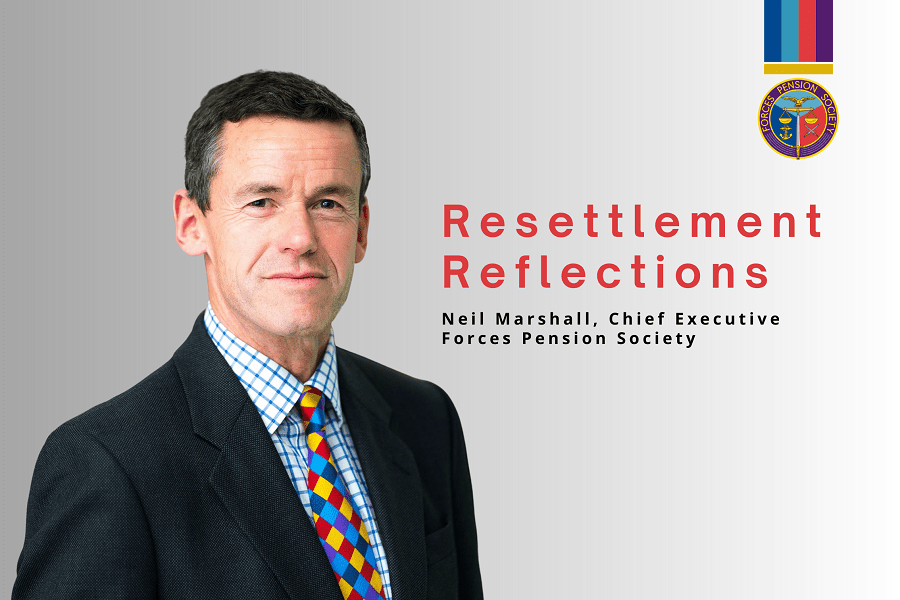
One certainty of service life is that eventually everyone leaves the Armed Forces, and most will pursue a second career. It’s why we place so much emphasis on supporting those going through the Resettlement process, believing as we do that the Society exists to help our Members make the best pension choices – the financial foundation upon which everything else is built.
Here our Chief Executive shares his own personal experience of Resettlement.
In my own case, I left the Army after a fulfilling 33-year career, but before completing my full career commission. The timing of my decision to leave was of course a very personal one, but it worked for me. After a couple of years working as a Defence and leadership development consultant, I succeeded in my application for the CEO role at The Forces Pension Society. This allowed me to be part of an exceptional team, supporting those serving, veterans and the wider military community. Importantly, I was already a Member of the Society which had helped me through the Resettlement financial planning process.
And over the years I’ve met scores of highly motivated, successful former military folks from diverse backgrounds in all kinds of inspiring roles. And above all, they are professionally and personally fulfilled. This led me to consider the keys to success. I first did this for an article published in 2020 and have adapted it since then.
Looking back, here’s 5 steps that worked for me and could help you:
Step 1: Be (or become) self-aware!! Have an honest conversation with yourself. Often the military choose your next role – this time you choose so don’t bluff it. Look back on your career to date and identify where you were happiest and best. This will indicate where you might be a good (or bad) fit and where you should concentrate your initial efforts.
Step 2: “Do the Math” (as my American buddies would say). Your financial situation is unique, like your Armed Forces Pension. It’s highly likely that your pension will be the foundation on which your financial future is based. Once you’ve worked out what you need to meet your financial commitments then you know the salary level at which you can afford to enter the market. Your embedded military qualities will then see you progress, even if your initial income is below expectation.
Step 3: Take Control and use the network. Resettlement is not something that’s done to you but rather something you undertake. So, seize it and exploit every opportunity to educate, train and develop. There’s a great network of people and organisations only too willing to help. Speak to them, develop your own network, and let them advise and influence you. And then do the same for others in a similar position in the years to come.
Step 4: Have a plan but be prepared to deviate from it. We all know a plan never survives contact with the enemy so don’t be surprised if your plan doesn’t deliver exactly as you thought it would. Take an occasional punt on a Resettlement course that catches your eye. Even if it doesn’t take you to your ultimate destination, it can be an enriching and worthwhile experience.
Step 5: Rinse and repeat as necessary. Don’t be afraid to admit you may have taken the wrong route – I certainly headed into the occasional cul-de-sac! Have the humility to take stock, honestly review (After Action Reviews are not alien to us) and re-engage.
The world of work is evolving and with significant change will come a host of opportunities for those prepared to adapt, seize the initiative, work collaboratively, and make things happen; the very qualities inherent in the military’s USP.
For our part at The Forces Pension Society, we are adapting to the changing environment to continue to support you with guidance when you need it most and give you a voice where it counts, on the representative bodies for Armed Forces and Public Services Pensions. In the coming years, we believe this representation will be particularly vital. And remember, it pays to understand your pension. With that in mind, I look forward to welcoming you as a Member of the Society and supporting you through your Resettlement and beyond.
With my best wishes for your future
Maj Gen Neil Marshall OBE




